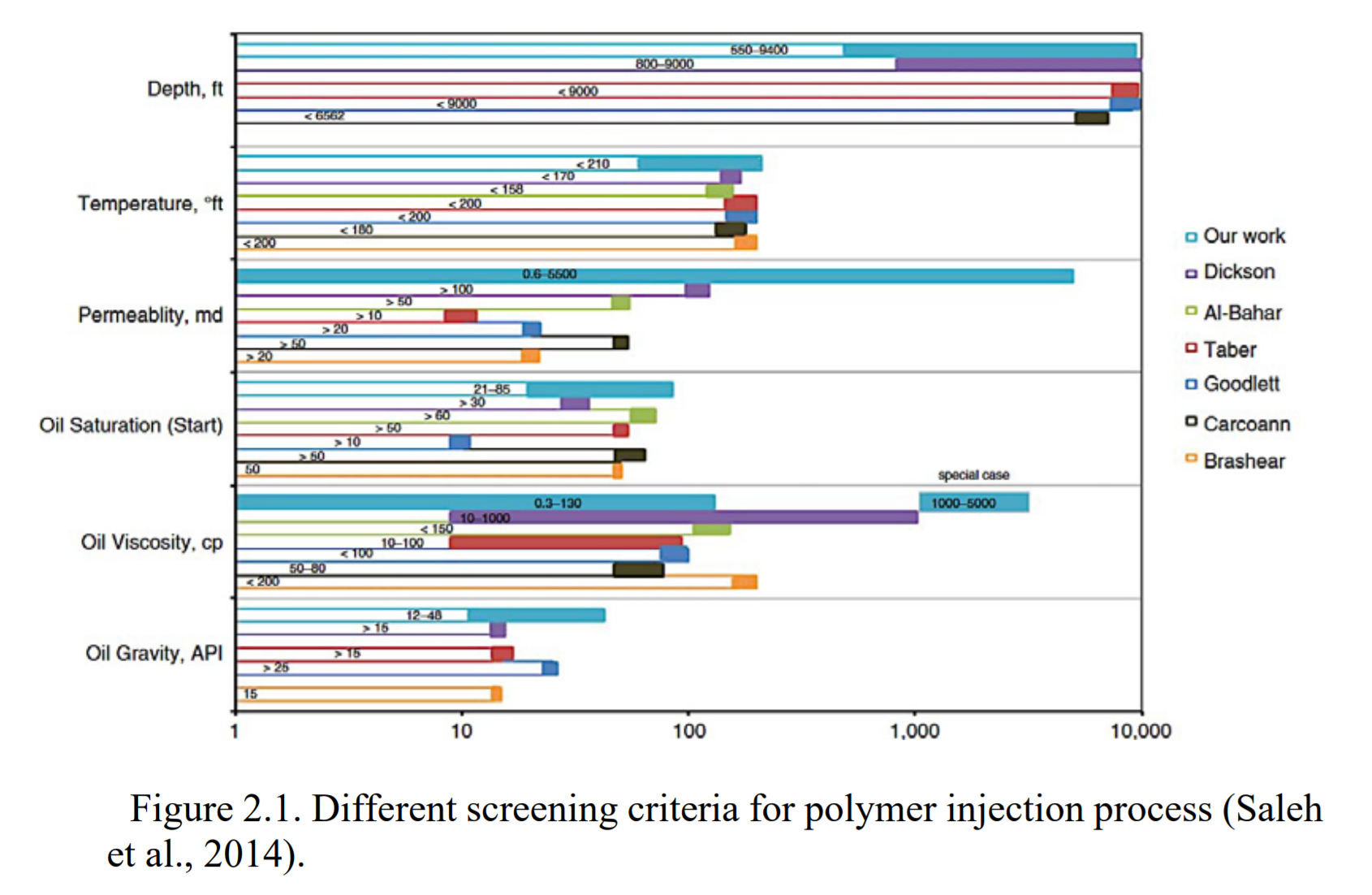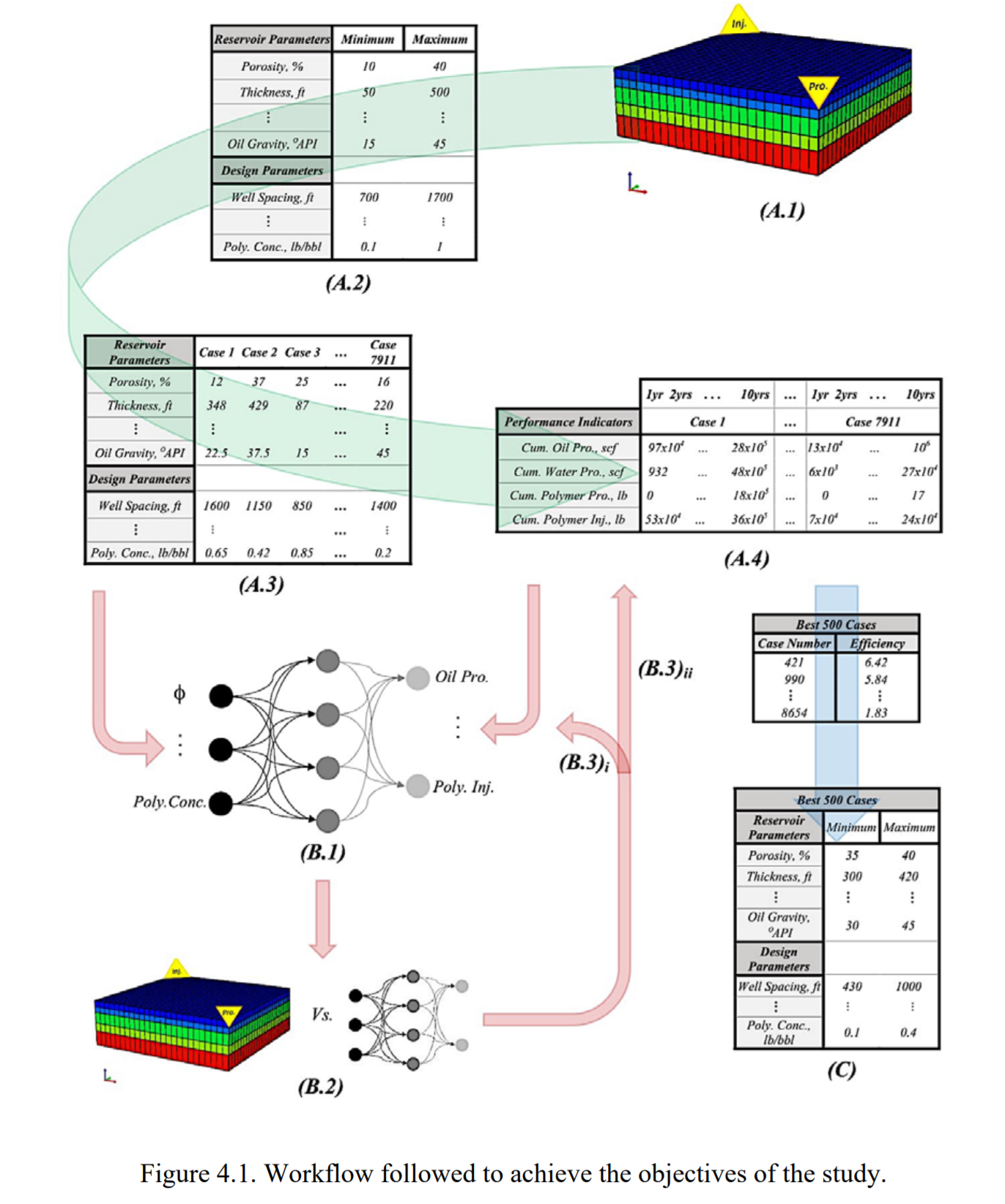DEVELOPMENT OF A SCREENING MODEL FOR POLYMER FLOODING IN MULTI-LAYER RESERVOIRS
Polymer flooding is a chemical enhanced oil recovery method which aims to increase oil production from a water flooded oil reservoir by increase in water viscosity and reduction in water-oil mobility ratio. These changes result in significant increase in sweep efficiency of water comparing with water-only flooding technique. The objective of this study is to analyze the behavior of multilayer reservoirs under polymer flooding process, considering effects of reservoir characteristics, polymer properties and operational parameters. This research employs a commercial reservoir simulator to model the fluid flow in a polymer-flooded reservoir.
A representative reservoir model is built in CMG IMEX black oil commercial simulator and an experimental design methodology is followed to include uncertainties in different parameters to create various reservoir and polymer injection (10,000) schemes. According to the performance indicators collected from the simulation runs, an optimization study is carried out to determine the optimum parameters ranges to maximize the performance of polymer flooding. To evaluate the performance of the flooding operation the performance indicators are used to calculate efficiency and water cut for ten years of injection with twoyear intervals.
A data driven screening tool that utilizes artificial neural networks is trained with the inputs and outputs of the simulator. This developed tool can be used to assess a large number of scenarios within a fraction of a second. Prediction performance of the tool is inspected with numerical simulator results and an average absolute error of ±0.06 bbl/lb and ±0.02 bbl/bbl are reported for efficiency and water cut outputs. Lastly, to ease the usability of the screening tool, a graphical user interface is generated.
Keywords:
Polymer, enhanced oil recovery, reservoir modeling, screening model, data-driven modeling


